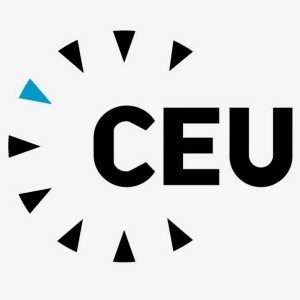Photos of university / #uofcincy
Candidates for the degree of Doctor of Philosophy are expected to specialize in one of the following programs:
- Greek and Latin Language and Literature,
- Ancient History,
- Bronze Age Archaeology, or
- Classical Archaeology.
To qualify for the Ph.D. the student must complete satisfactorily a series of appropriate courses and qualifying examinations, both written and oral. All candidates must demonstrate proficiency in French and German.
Students in programs A and B must pass examinations in Greek and Latin sight reading, examinations in special authors and/or a special field, and comprehensive examinations in Greek and Latin literature and Greek and Roman history. "Paper" does mean not "exam" in American parlance, but a discursive exposition prepared in advance.
Students in programs C and D must demonstrate proficiency either in Greek or Latin. In addition they write papers in (1) Bronze Age archaeology, (2) classical archaeology, and (3) Greek and Roman history. They are also given the opportunity to take part in excavations.
While it is possible for the exceptional student with thorough undergraduate preparation to qualify for the Ph.D. in three years, most students require five years or more. It should be emphasized that the accumulation of high grades in formal courses, while important, is secondary to demonstration of the capacity for original thinking and to the completion of research contributing significantly to the field and effectively presented in the dissertation.
- CLAS7001 Greek History
- CLAS7002 Roman History
- CLAS7003 Jewish and Christian History
- CLAS7005 Greek Documents
- CLAS7006 Greek Papyri
- CLAS7007 Latin Documents
- CLAS7011 Prehistory 1
- CLAS7012 Prehistory 2
- CLAS7013 Greek Archaeology 1
- CLAS7014 Greek Archaeology 2
- CLAS7015 Roman Archaeology 1
- CLAS7016 Roman Archaeology 2
- CLAS7021 Historical Linguistics
- CLAS7022 Literary Theory
- CLAS7031 IT for Archaeologists
- CLAS7032 Archaeological Theory
- CLAS8005 Directed Readings
- CLAS8006 MA Thesis
- CLAS8007 PHD Dissertation
- CLAS9001 History Seminar
- CLAS9011 Prehistory Seminar
- CLAS9012 Greek Archaeology Seminar
- CLAS9013 Roman Archaeology Seminar
- CLAS9014 Diachronic Archaeology Seminar
- GRK6001 Tragedy 1
- GRK6002 Philosophy
- GRK6003 Lyric etc.
- GRK6004 Attic Orators
- GRK6005 Tragedy 2
- GRK6006 Thucydides
- GRK6007 Comedy
- GRK6008 Hellenistic Poetry
- GRK7011 Prose Composition
- GRK8001 Remedial
- GRK8005 Directed Readings
- GRK9001 Seminar
- LATN6001 Cicero
- LATN6002 Comedy
- LATN6003 Tacitus
- LATN6004 Horace
- LATN6005 The Novel
- LATN6006 Lucretius
- LATN6007 Silver Latin
- LATN6008 Vergil, Eclogues and Georgics
- LATN7011 Prose Composition
- LATN8001 Remedial
- LATN8005 Directed Readings
- LATN9001 Seminar
- Applicants to any of the graduate programs need a Bachelor of Arts degree from an accredited college. An undergraduate major in Classics, Classical Studies, Greek or Latin, Ancient History, or Archaeology or its equivalent is necessary for admission.
- Without setting down hard and fast minimum requirements, the Classics Department will judge candidates partly on their competence in Classical Greek and Latin. At least two year's study in both languages is ordinarily required for students applying to the doctoral programs or to masters programs intended to lead to the doctorate. Undergraduate study of French and German is also strongly advised.
- Three letters of reference from former professors or supervisors. The recommenders should submit the letters electronically. Recommenders listed in the online application will receive an email notification about submitting their letter online. Further instructions for electronic submission are on the application.
- Official transcripts from previous institutions to be sent directly to the Graduate School
- Submit your GRE scores (and if an international student, your TOEFL scores). These are sent electronically directly from the testing agency to the University of Cincinnati. Note that the UC institutional code is 1833. You do not need a department code.
- A Statement of Purpose containing a brief intellectual autobiography describing your goals and professional objectives.
- A Writing Sample (20-40 pages) which demonstrates your ability to research, assemble, evaluate, and present a scholarly argument.
Scholarships
Graduate students are supported with full tuition scholarships and generous fellowships. Fellowships are normally awarded when a prospective student is accepted for admission. A student who has received a fellowship at the University of Cincinnati and is making satisfactory progress in the program, will normally continue to be supported for five years, with a possibility of extension to seven years if the program of the student requires it.
Students may also acquire teaching experience by holding a University Teaching Assistantship. Holders of such assistantships may either teach their own course or assist a professor.







